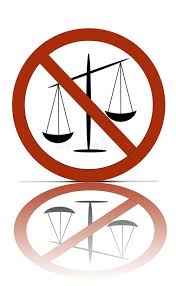
The court’s order for supervised visitation with my only child, my beloved son, shattered my world. The only reason, because I took my son out of state to be with family after Mitchell’s shocking divorce announcement. That judge said it was putting him in the middle of it; which I begged to differ as he had a great time with family, and I had not yet been served. To me, this was the judge’s abuse of power and obvious biasedness towards Mitchell. The thought of not seeing him every day, of being watched like a criminal or predator during our precious moments together, tore at my heart. For two agonizing weeks, I hadn’t held him, kissed his forehead, or heard his laugh. Every day, I called the visitation facility, my voice trembling with desperation, begging for a start date. Each time, the young staff dismissed me, saying Mitchell hadn’t approved it yet. Mitchell—who had no right to delay what the court had already mandated. The court papers clearly stated visits were to begin the previous week, yet I was powerless, trapped in a system that seemed to mock my pain.
When I finally secured a date, the news hit like a fresh wound: $100 per visit, as if my son were an exhibit at a petting zoo. Before I could even see him, I had to attend an intake meeting to learn the facility’s rules and sign a stack of documents. That appointment couldn’t come fast enough. At the meeting, tears streamed down my face as I poured out my story to the woman across from me. I brought everything—court orders, Mitchell’s countless online posts, a mountain of evidence to prove my truth. This wasn’t a courtroom, but I needed someone to hear me, to see the injustice. She listened, her eyes kind but heavy with understanding. She’d met Mitchell the day before and found him charming, but after hearing my story and seeing my proof, her words broke me open anew.
“Jocelyn,” she said softly, “I’ve worked with abused women for years—it’s my specialty. I see what’s happening here, and my heart aches for you. You need an attorney to fight this. What’s been done to you is unconscionable.” For the first time, someone with real experience saw me, believed me. Her words were a lifeline, but they also deepened my grief—confirmation of the nightmare I was living.
Trapped by Rules and a Flawed System
I was drowning financially, a stay-at-home mom for seven years, out of the workforce, now scraping by. I told her I’d find the money for the visit by week’s end, pleading to see my son. She saw my desperation and agreed to let me see him the next day, payment pending. To provide for him, I’d taken a fulltime job in the local elementary school cafeteria, earning just $430 a month, paid at the end of each month. Later, a judge would criticize my income, as if my sacrifice and hustle meant nothing. But in that moment, all I cared about was holding my son again, feeling his small arms around me, and fighting with every ounce of my being to bring him back into my life.
The rules of the supervised visitation facility felt like another layer of punishment in an already unbearable ordeal. I was told I had to arrive within a strict 15-minute window for my weekly two-hour visit with my son, Samuel. When our precious time ended, I was required to stay on-site for an additional 15 minutes to ensure Mitchell, Samuel’s father, had left the property with him. The facility staggered our arrivals and departures to prevent any confrontations, inside or out. I understood the reasoning—safety first—but it wasn’t necessary for me. I wasn’t the threat, yet I was treated as one, bound by rules that stripped away my dignity and deepened my heartbreak.
Before my first visit, desperate to understand the place holding my time with Samuel hostage, I researched the facility the court had ordered me to use. What I uncovered was both astonishing and infuriating. Located directly across from the courthouse and jail—a cruel irony for a mother fighting to be seen as more than a criminal—this facility was run by a middle-aged couple who had once dreamed of adopting a child. In their personal struggle to build a family, they’d faced challenges finding a neutral space to meet their prospective child’s birth parents. So, they founded this nonprofit, intended as a safe meeting ground for adoptive and birth parents. Somehow, they’d convinced the court system to funnel supervised visitation cases through their doors. To me, it felt like a racket, another way to profit from the pain of parents like me, forced to pay $100 per visit just to hold my son.
The turmoil this facility inflicted on me was unbearable. Their rigid rules, their delays, their complicity in a system that tore me from Samuel—it was maddening. Worse, they played a role in my second arrest during this nightmarish legal battle, a wound that still stings. To this day, the facility operates under new management, still entwined with the court system, profiting from the heartbreak of families like mine. I should have sued them for the pain they caused, for turning my love for my son into a transaction, for making me feel like a stranger in his life. I should have sued them for their false claims and statements to the police and wonder if I still can. Every visit, every rule, every moment waiting in that sterile building was a reminder of how deeply the system had failed us.
A Mother’s Torment: Betrayed by a System and a Stolen Moment
Every visit to the Tending To Families (TTF) facility was a gauntlet of heartbreak, governed by rigid rules that stripped away my dignity as a mother. Beyond the staggered 15-minute arrival and departure times to keep me from crossing paths with Mitchell, I was required to clean the visitation room after each session, tidying up for the next family as if my pain could be swept away with the toys and crumbs. Each visit, I arrived a nervous wreck, my arms laden with bags overflowing with Samuel’s favorite toys, board games, and heartfelt letters and cards from family. These were tokens of love, reminders of the life we once shared, but one day, a young observer coldly forbade me from reading those letters to my son. My heart screamed in silent fury—why was I denied the chance to remind Samuel of his family’s unwavering love? Swallowing my anger, I tucked the cards back into my bag, my hands trembling.
Week after week, I brought the toys Samuel asked for—Legos to build castles of imagination, The Game of Life, its irony cutting deep as I played a board game version of a life I’d never have, no pink peg or carefree family in sight. We read books together, a ritual I’d nurtured since he was a baby. Holding him in my lap, turning pages, his small voice joining mine—it felt like home, like the old times, until I glanced up to see the observer’s eyes on us, scribbling notes. It was an invasion, a violation of our sacred bond, reducing our love to a performance under scrutiny. As our two hours drew to a close, my heart would fracture, but I forced a smile to shield Samuel from my anguish. He’d turn, led by the observer’s hand, blowing me a kiss or calling out, “I love you, Mama.” The moment the door clicked shut, I collapsed, sobbing as I gathered our things, tears blurring my vision as I fulfilled their cleaning rule.
On one devastating day, as I mechanically cleaned the room, I found a piece of paper on the sofa where the observer had sat. My mind, clouded by grief, didn’t register what it was. I tossed it into one of my three heavy bags, packed with toys and love, and stumbled to the lobby to wait out the mandatory 15 minutes. There, I called Susan, my confidante, barely able to speak through my sobs as I recounted every detail of my fleeting time with Samuel. The facility staff signaled I could leave, and I drove home, tears streaming, still pouring my heart out to Susan. When I reached home, my public defender, Preston Cole, called. His voice was urgent: “Do you have his check?” Confused, I couldn’t process his words. He explained the police had contacted him, accusing me of stealing a check from TTF. My heart stopped. That piece of paper—it must have been Mitchell’s $50 payment for his share of the visitation fee. In my haze of grief, I’d picked it up while cleaning, as the rules demanded.
“Oh my gosh, it’s in my bag!” I cried, rummaging frantically while still on the phone. “I’ll take it back now!” Mr. Cole agreed, notifying the facility as I drove 30 minutes back, slipping the check under their locked door after hours. I called him to confirm, believing the misunderstanding was resolved. But two days later, as I walked across the massive parking lot to start my new cashier job at Howe’s Building Materials—a place I now despise and refuse to support with my business—two police cars screeched in, cornering me. My knees buckled, my heart raced. “Confirm your name,” they demanded. I did, trembling. “You’re under arrest.” Tears poured as I pleaded, “For what? I haven’t done anything!” They claimed I stole a $50 check from TTF, ignoring that I’d returned it the moment I realized my mistake.
I called my private investigator, Juliet Hart, from the squad car. She was livid, vowing to fight this injustice, but nothing could calm the terror of losing my liberty again. Booked into the county jail, I spent nine agonizing days locked away, my father forced to bail me out. I’d done nothing wrong. The check, Mitchell’s payment, was from the same account I’d known for years—his monthly alimony checks came from it. I never endorsed it, never intended to. It was a $50 mistake born of my emotional wreckage, not malice. Yet, two young, inexperienced staff members at TTF filed a police report, their recorded call dripping with bias. They claimed I stole the check to access Mitchell’s bank information, mocking my pain with comments like, “This is the kind of stuff you see on TV.” I wanted to scream, “No, you’ve got it all wrong!” They didn’t know me, didn’t understand the torment of those visits, how I was a shell of myself, robotically cleaning to follow their rules. I had nothing to gain from seeing Mitchell’s check nor did I do anything with it.
The facility’s cameras captured everything, yet they twisted my actions. One young male observer even bragged, “I can’t believe how easy it was to get this job,” revealing the incompetence at TTF’s core. The facility, founded by a couple backed by a local mega-church, had wormed its way into the court system with polished promises, despite their inexperience. When I tried to confront the husband owner, he hung up on me, his refusal to engage an admission of guilt. Those young staff members, swayed by Mitchell’s charm, turned a mother’s innocent mistake into a nightmare. Nine days in jail, another booking, all for a $50 check I returned. The humiliation, the injustice, the betrayal of a system meant to protect families—it scars me still. My love for Samuel, my fight to be his mother, was reduced to a crime by a facility that profited from my pain.









